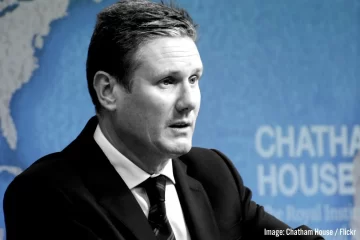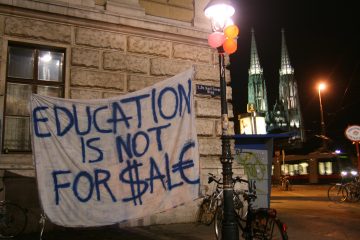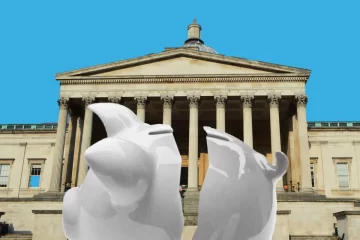With talk of the Philosophy department drastically cutting the teaching on Marx and other radical thinkers around political philosophy, a student-run campaign and petition has sprung up at Cambridge University in response.
Arguing for the ‘Faculty of Philosophy to keep the existing paper and lecture course on Marxism on its syllabus, against the Faculty’s decision to reduce coverage of this and other radical philosophy papers’. Students are worried that ‘they will receive drastically reduced or no coverage’ on the topics or Marxism, Anarchism and on ‘Power’. We share their concern of ‘vastly reducing the non-liberal content of the syllabus’ and defend the importance of radical ideas especially in times like these.
To ignore a thinker like Marx seems absurd as his importance even from a very conservative standpoint is hard to overstate. In the area of philosophy, the basis he laid out, which was later elaborated on by others is an incredibly fruitful area of insight and deserves to be studied by not just students but by all. Marx’s dive into Hegelian philosophy to ‘discover the rational kernel within the mystical shell’ culminated in his elaborate theoretical framework not just designed to understand but to change the world. Marx is one of the world’s greatest philosophers, his ideas are the most pertinent and represent a break with previous philosophers by succeeding in tackling ‘one of the most difficult tasks confronting philosophers’ which, according to Marx, is to ‘descend from the world of thought to the actual world.’
The petition and campaign laid out by ‘concerned philosophy students’ mirrors other attempts by students throughout the country to introduce or at least preserve a more radical syllabus. This becomes ever more pressing as these turbulent times no longer correlate to what we are being taught.
Most notably, in the sphere of economics, groups like the Manchester University Post-Crash Economics Society have reacted to the narrow focus of economic teaching in the face of the complete disaster of neo-liberal economics culminating our most recent capitalist crisis. With even the Nobel prize winning economist Paul Krugman describing our recent experience with microeconomics as “spectacularly useless at best, and positively harmful at worst”, many students, including from Cambridge (the Society for Economic Pluralism) and Sussex, have been arguing for the breadth of ideas to be wide open. We applaud their efforts and sentiment to fight for what education should be. The open and bold pursuit of knowledge wherever it may lead. As Marx explained to his daughters in his favorite motto: De omnibus dubitandum, Everything must be doubted.
One must wonder why this decision has been taken in Cambridge and the student opposition dismissed. The petition states: ‘Given that both the Power and the Marxism lectures are extremely popular and well-attended, this decision certainly would not reflect the interests of students’. This raises some questions and speculation as to why they have decided to do this.
Could it be part of the wider narrative of the commercialization of education which views students as consumers and the study of radical ideas as disruptive to this goal and being of not much use for employers? Or a reflection of one individual’s political prejudices when creating the new syllabus? Or maybe even an honest and simple reflection of staffing or financial issues? It’s probably a combination of all these and many other factors, we will never know but what is for certain is that it is a grave mistake.
When Karl Marx was a student he wrote in his doctoral thesis that ‘Greek philosophy seems to have met with something with which a good tragedy is not supposed to meet, namely, a dull ending’. Let this is be a warning also to the fate of modern philosophy as it continues to isolate itself from a wider sphere of human thought. Burrowing itself away from radical ideas especially, into the stale sphere of pure academia.
Furthermore, the ideas of Marx and other radical thinkers have never been more important and necessary as the world is beginning to tremble under the burden of the great events beginning to develop: from financial crisis with no end in sight, to revolutions from the Middle East to Africa and rising discontent throughout the world starting to reveal itself. From a theoretical standpoint we can see that capitalism has reached its limits and has become senile. But now, importantly, the world is beginning to feel this in a practical way as well and this is the basis for the momentous events we are going to witness.
The importance of keeping the ideas of Marx and others alive is to answer the burning questions of the day in an increasingly turbulent world. This is not just relevant in the academic sphere or places of learning like universities but where it really matters: as living ideas within the working class and the oppressed.
We must defend their importance within the universities and within the working class movement because the ideas of Marx are the order of the day and, for Satre, the ‘philosophy of our time’. These are more than just ideas but the way in which in we will change the world!
(Please do what you can to publicise and support the creators of this campaign. The petition can be found at www.change.org/p/philosophy-faculty-university-of-cambridge-save-marx)
by Thomas P. Muntz, Cambridge Marxists
If you’d like more information about the Cambridge Marxists see the blog here and Facebook page here.



